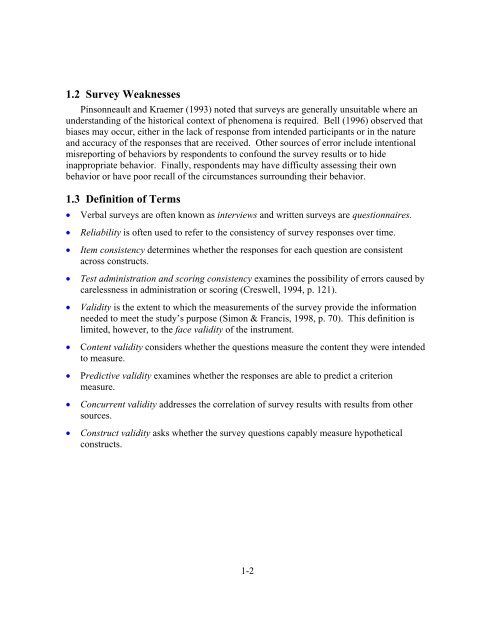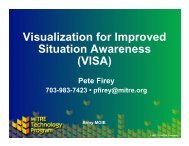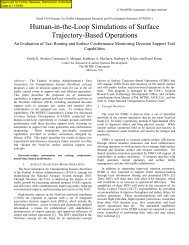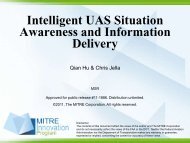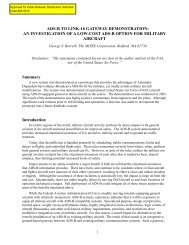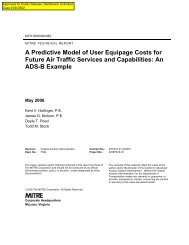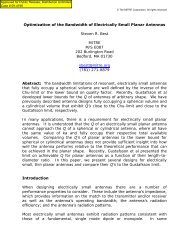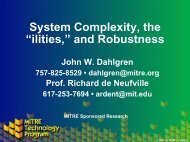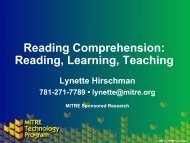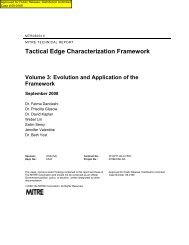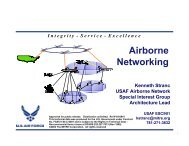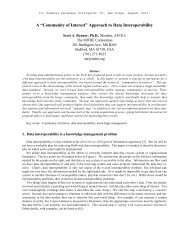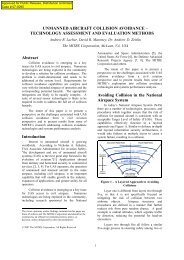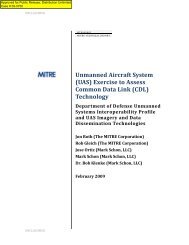Fundamentals of Survey Research Methodology - Mitre
Fundamentals of Survey Research Methodology - Mitre
Fundamentals of Survey Research Methodology - Mitre
Create successful ePaper yourself
Turn your PDF publications into a flip-book with our unique Google optimized e-Paper software.
1.2 <strong>Survey</strong> Weaknesses<br />
Pinsonneault and Kraemer (1993) noted that surveys are generally unsuitable where an<br />
understanding <strong>of</strong> the historical context <strong>of</strong> phenomena is required. Bell (1996) observed that<br />
biases may occur, either in the lack <strong>of</strong> response from intended participants or in the nature<br />
and accuracy <strong>of</strong> the responses that are received. Other sources <strong>of</strong> error include intentional<br />
misreporting <strong>of</strong> behaviors by respondents to confound the survey results or to hide<br />
inappropriate behavior. Finally, respondents may have difficulty assessing their own<br />
behavior or have poor recall <strong>of</strong> the circumstances surrounding their behavior.<br />
1.3 Definition <strong>of</strong> Terms<br />
• Verbal surveys are <strong>of</strong>ten known as interviews and written surveys are questionnaires.<br />
• Reliability is <strong>of</strong>ten used to refer to the consistency <strong>of</strong> survey responses over time.<br />
• Item consistency determines whether the responses for each question are consistent<br />
across constructs.<br />
• Test administration and scoring consistency examines the possibility <strong>of</strong> errors caused by<br />
carelessness in administration or scoring (Creswell, 1994, p. 121).<br />
• Validity is the extent to which the measurements <strong>of</strong> the survey provide the information<br />
needed to meet the study’s purpose (Simon & Francis, 1998, p. 70). This definition is<br />
limited, however, to the face validity <strong>of</strong> the instrument.<br />
• Content validity considers whether the questions measure the content they were intended<br />
to measure.<br />
• Predictive validity examines whether the responses are able to predict a criterion<br />
measure.<br />
• Concurrent validity addresses the correlation <strong>of</strong> survey results with results from other<br />
sources.<br />
• Construct validity asks whether the survey questions capably measure hypothetical<br />
constructs.<br />
1-2


